 Junkyard Bargain (Shining Smith #2) by Faith Hunter
Junkyard Bargain (Shining Smith #2) by Faith Hunter Format: audiobook
Source: purchased from Audible
Formats available: audiobook
Genres: dystopian, post apocalyptic, urban fantasy
Series: Shining Smith #2
Published by Audible Audio on February 25th 2021
Purchasing Info: Author's Website, Publisher's Website, Amazon
Goodreads
Sometimes before you can face your enemies, you need to confront yourself.
Time is running out for Shining Smith and her crew to gather the weapons they need to rescue one of their own. But will they even make it to the ultimate battle? First, they’ll need to hit the road to Charleston - a hell ride full of bandits, sex slavers, corrupt lawmen, and criminal bike gangs looking to move in on Shining’s territory.
Shining’s human allies will do anything to protect her - because they must. But will victory be worth it if she must compel more and more people to do her bidding? And will her feline warriors, the junkyard cats, remain loyal and risk their lives? Or are they just in it for the kibble?
My Review:
Honestly, I picked up the audio of the first book in this series because of the title. Basically, I started Junkyard Cats for the cats. But I came back for Shining, her friends, her totally screwed-up world and her need to preserve her own little corner of it – and the cats.
OK, I’m still here for the cats. It’s actually the cats that Shining makes the junkyard bargain of the title with. Because she needs to take some of them away from the junkyard and with her and Cupcake on a dangerous and deadly mission – to Charleston, West Virginia.
A place which isn’t all that dangerous or deadly in our world. But in Shining’s world, post the apocalypse that punched a hole in the ozone layer, totally wrecked the planetary environment and brought alien peacekeepers to our solar system to keep us from screwing ourselves any further – every trip away from Shining’s base at the scrapyard is fraught with danger.
Especially this one. Because she’s preparing to take on and take out the one person who might be a bigger threat to the world than Shining is herself. Someone who is more than willing to take over the entire planet.
The world is literally not big enough for both Shining Smith and Clarice Warhammer. They may both be queens, but only one of them is out to rule the world. And the other is out to stop her.
 Escape Rating A+: The first book in this series was very insular, while it still managed to introduce us to the mess of the world that is what Shining, and the rest of humanity, is left with. That insularity managed to introduce us to everything that’s going on because we spend the entire story – and this one as well – inside Shining’s head. And because the world comes to her, her sanctuary and her scrapyard, in order to take her out.
Escape Rating A+: The first book in this series was very insular, while it still managed to introduce us to the mess of the world that is what Shining, and the rest of humanity, is left with. That insularity managed to introduce us to everything that’s going on because we spend the entire story – and this one as well – inside Shining’s head. And because the world comes to her, her sanctuary and her scrapyard, in order to take her out.
So in the first book the war came to her. This second book is about Shining getting ready to take the war out to the rest of the world – or at least out to the people who are after her. That she may have to take out at least a piece of a rival gang and possibly even part of the government along the way is just part of the cost to protect herself and those she sees as hers.
And that’s where this story goes to all kinds of interesting places. Because Shining is in the process of adjusting her perspective on exactly who and what she sees as hers and how it got that way. She wants friends – not too many but a few. What she’s afraid she has made is something else altogether.
As this story takes us out into Shining’s greater world, we get to see just how FUBAR’d everything really is. Humanity seriously screwed up. In a way, it reminded me of the world of Horizon Zero Dawn. In both post-apocalyptic worlds, at first it seems as if it’s the machines who are the enemy of humanity, only to eventually realize that the situation is one that Walt Kelly’s Pogo recognized all the way back in 1970, “We have met the enemy and he is us.”
What makes the story, at least for this reader, is that we do spend all of it inside Shining’s head. This is a first-person singular perspective that is absolutely aided by the marvelous narrator, Khristine Hvam, who manages to perfectly convey Shining’s tired, sad, and generally world-weary voice in a way that made me really feel like I was listening to Shining think. That Shining is excellent at bringing on the snark provides a great deal of rueful laughter and gallows humor.
And yes, the cats are still part of the story. I suspect that the reader’s mileage on just how much they enjoy the cats’ participation in Shining’s not-so-little war is going to depend on just how much the reader likes cats, anthropomorphized or otherwise. I think the pack of little predators fits in really well, and adds to my enjoyment of the story quite a bit. Ailurophobes may feel differently.
Obviously I loved the entire experience of listening to Junkyard Bargain. At the end, it definitely feels like there are more parts to this story, and I’m really, seriously, absolutely looking forward to them. But as this episode in Shining’s saga came to an end, something happened that made me sit up and have a kind of a WOW moment. (Luckily I was sitting in my garage to finish and not still on the road!)
Shining is Galadriel. No, she’s not an elf queen and this is not an epic fantasy world. But Shining IS a queen. Not just figuratively but actually literally. And she has power in some of the ways that Galadriel has power. To the point where Shining is faced with the same choice that Galadriel is faced with when Frodo asks her if he should give her the One Ring. And like Galadriel, when faced with that ultimate test, Shining is not found wanting.
At least not yet.

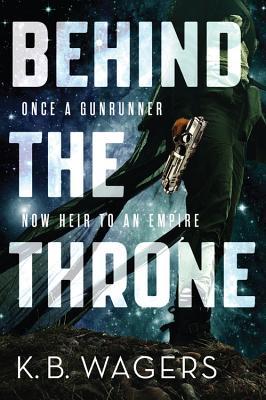 Behind the Throne (The Indranan War #1) by
Behind the Throne (The Indranan War #1) by 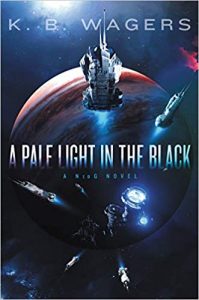 Escape Rating A++: I picked up Behind the Throne because I absolutely adored the author’s
Escape Rating A++: I picked up Behind the Throne because I absolutely adored the author’s 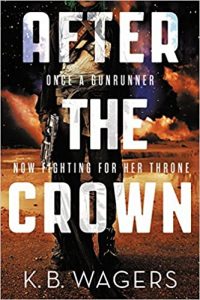 Even though they are both extremely unconventional for the positions they hold, their very unconventionality makes them not just the only people by inheritance for those positions at the time they are forced to take them, but the only people by talent, skill and capacity to pull the nuts of their respective empires out of the fires that they have inherited along with their thrones.
Even though they are both extremely unconventional for the positions they hold, their very unconventionality makes them not just the only people by inheritance for those positions at the time they are forced to take them, but the only people by talent, skill and capacity to pull the nuts of their respective empires out of the fires that they have inherited along with their thrones.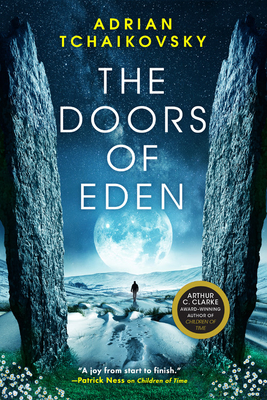 The Doors of Eden by
The Doors of Eden by 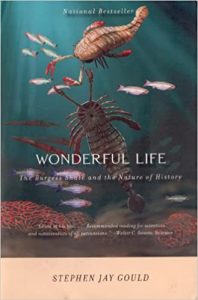 Spy games, cryptids (Sasquatch, Yetis and Loch Ness Monsters, OH MY!) with a nod to Stephen Jay Gould’s
Spy games, cryptids (Sasquatch, Yetis and Loch Ness Monsters, OH MY!) with a nod to Stephen Jay Gould’s  The Jane Austen Society by
The Jane Austen Society by 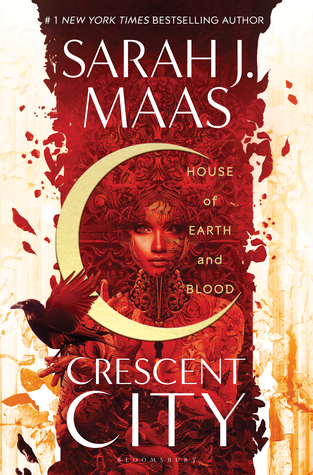 House of Earth and Blood (Crescent City, #1) by
House of Earth and Blood (Crescent City, #1) by 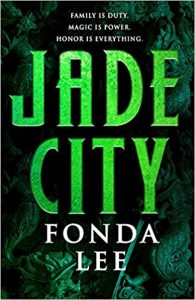 Initially, what dragged me into this story was the sheer complexity of the worldbuilding. This is not a place I’d EVER want to live, because it is seriously fucked up – especially for the original recipe humans – but the mixture of 21st century technology with high-powered magic and authoritarian rule by powerful immortals blends into a world that is both easy to envision and fascinating to explore.
Initially, what dragged me into this story was the sheer complexity of the worldbuilding. This is not a place I’d EVER want to live, because it is seriously fucked up – especially for the original recipe humans – but the mixture of 21st century technology with high-powered magic and authoritarian rule by powerful immortals blends into a world that is both easy to envision and fascinating to explore.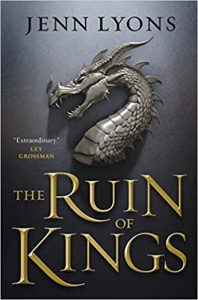 Some of that was language. It felt like all of the physical descriptions of people were repeated whenever they appeared, over and over and over. And it was very obvious that all of the people in this story were all extremely conventionally attractive. But all of the descriptions were overblown, something that was particularly obvious in audio.
Some of that was language. It felt like all of the physical descriptions of people were repeated whenever they appeared, over and over and over. And it was very obvious that all of the people in this story were all extremely conventionally attractive. But all of the descriptions were overblown, something that was particularly obvious in audio.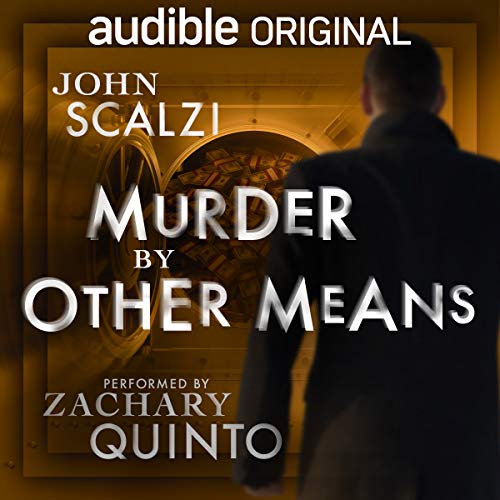 Murder by Other Means (The Dispatcher #2) by
Murder by Other Means (The Dispatcher #2) by  Escape Rating A: John Scalzi has a very fine line in snark. In fact, his snarkitude is a good chunk of what I read him – or in this case listen to him – FOR. His characters generally do a marvelous chuckle-with-a-grimace job at making me chuckle with that grimace, because they manage to say all the clever things that most of us figure out long after a conversation is done while said conversation is still going on – when that smart-aleck-ness can be delivered with full force – even if it’s just within the confines of the characters own head.
Escape Rating A: John Scalzi has a very fine line in snark. In fact, his snarkitude is a good chunk of what I read him – or in this case listen to him – FOR. His characters generally do a marvelous chuckle-with-a-grimace job at making me chuckle with that grimace, because they manage to say all the clever things that most of us figure out long after a conversation is done while said conversation is still going on – when that smart-aleck-ness can be delivered with full force – even if it’s just within the confines of the characters own head.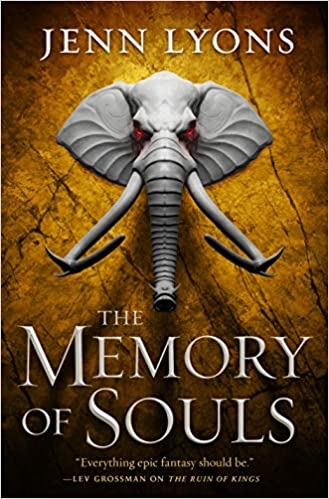 The Memory of Souls (A Chorus of Dragons, #3) by
The Memory of Souls (A Chorus of Dragons, #3) by 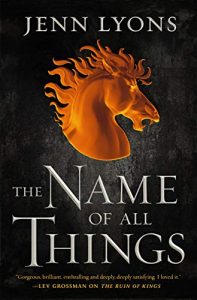 Escape Rating A++: Last year’s entry in this series,
Escape Rating A++: Last year’s entry in this series, 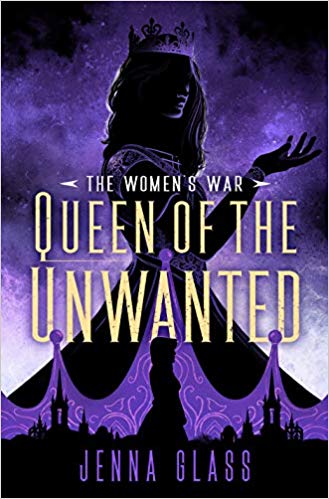 Queen of the Unwanted by
Queen of the Unwanted by 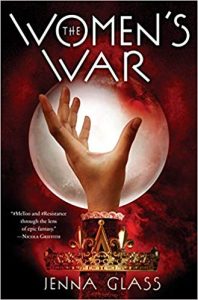 I picked up this book because for the most part I enjoyed the starting book in this series, The Women’s War. But I have to say that I found the message of that first book to sometimes be heavy-handed. Not enough to spoil my enjoyment, but more than enough to make me wonder what would happen next.
I picked up this book because for the most part I enjoyed the starting book in this series, The Women’s War. But I have to say that I found the message of that first book to sometimes be heavy-handed. Not enough to spoil my enjoyment, but more than enough to make me wonder what would happen next. Or at least, not until the very end, when the action suddenly proceeds apace, only to leave readers with multiple terrible book hangovers as they wait for the next book. Whenever it appears. I listened to 80% of this and then read the rest. The audio was interesting enough to keep me occupied while driving, but when things picked up I couldn’t stand to continue at that slow pace.
Or at least, not until the very end, when the action suddenly proceeds apace, only to leave readers with multiple terrible book hangovers as they wait for the next book. Whenever it appears. I listened to 80% of this and then read the rest. The audio was interesting enough to keep me occupied while driving, but when things picked up I couldn’t stand to continue at that slow pace.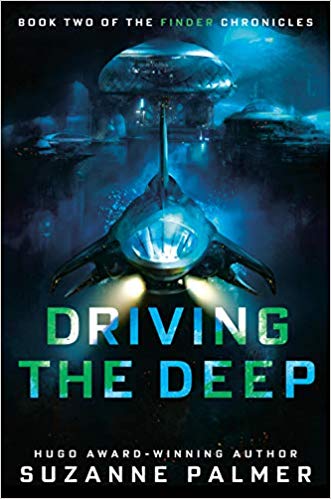 Driving the Deep (Finder Chronicles, #2) by
Driving the Deep (Finder Chronicles, #2) by 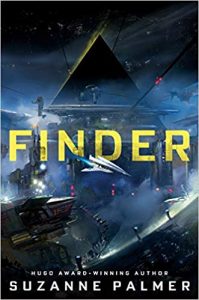 Escape Rating A-: I picked this up because I loved the first book in the
Escape Rating A-: I picked this up because I loved the first book in the 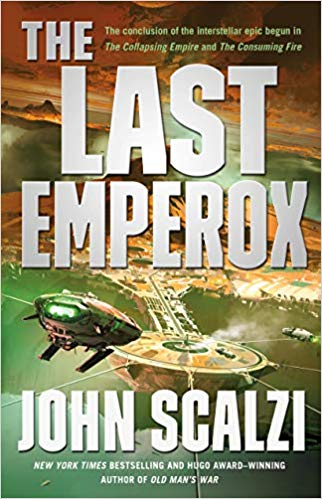 The Last Emperox (The Interdependency, #3) by
The Last Emperox (The Interdependency, #3) by 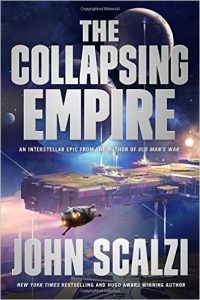 Making it all the more amazing that when this story began, with the writing of the first book in the series,
Making it all the more amazing that when this story began, with the writing of the first book in the series, 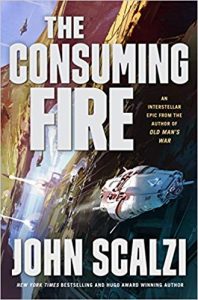 Escape Rating A+: I had a terrible approach/avoidance issue with this book. A part of that was because I had originally intended to listen to it, as I have to the entire rest of the series. The walking profanity explosion that is Kiva Lagos is best appreciated in audio. She just doesn’t have the same impact when reading the book yourself. Also, Wil Wheaton has done a fantastic job with the series, including this entry. But I normally listen while driving, or while on a treadmill at the gym, and everything has been closed. I had more time for reading but fewer opportunities for listening. In the end I mostly played Solitaire and just let the audio wash over me. It was marvelous.
Escape Rating A+: I had a terrible approach/avoidance issue with this book. A part of that was because I had originally intended to listen to it, as I have to the entire rest of the series. The walking profanity explosion that is Kiva Lagos is best appreciated in audio. She just doesn’t have the same impact when reading the book yourself. Also, Wil Wheaton has done a fantastic job with the series, including this entry. But I normally listen while driving, or while on a treadmill at the gym, and everything has been closed. I had more time for reading but fewer opportunities for listening. In the end I mostly played Solitaire and just let the audio wash over me. It was marvelous.